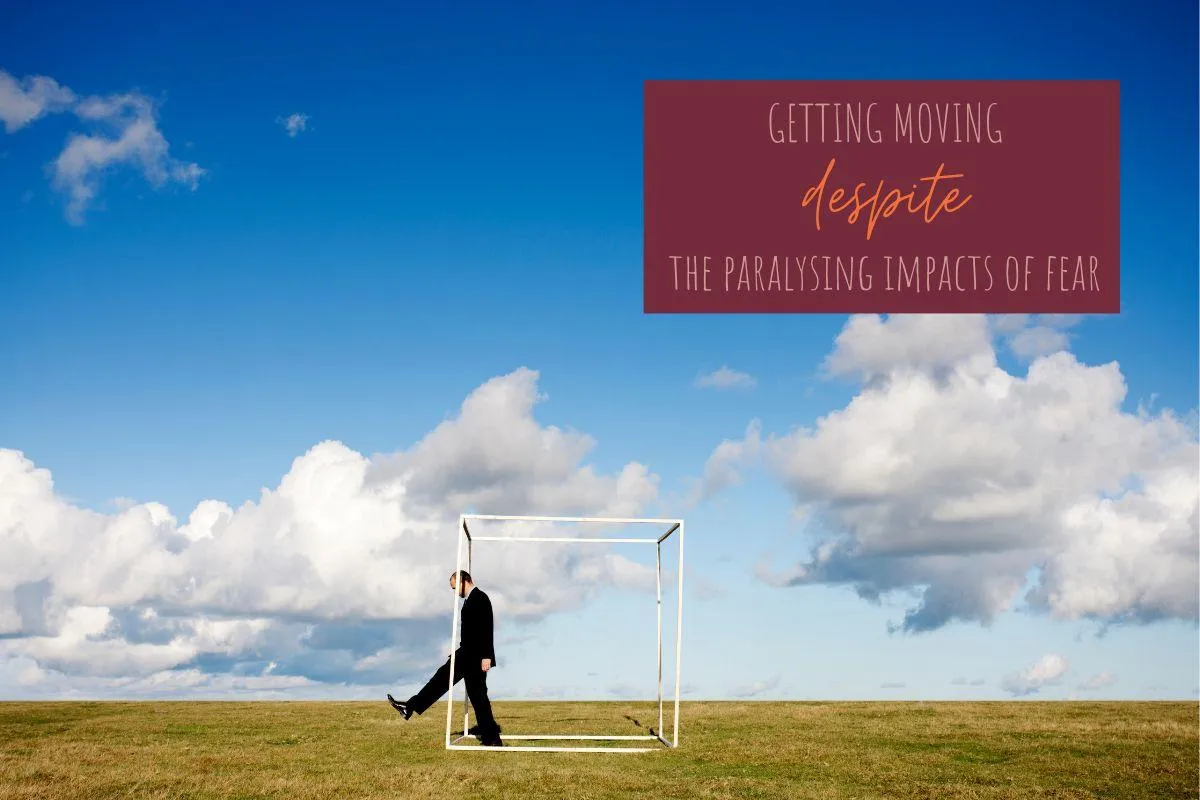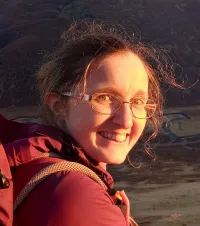
Getting moving despite the paralysing effects of fear
Fear has been a huge part of my life for as long as I can remember.
I remember a friend musing to me recently that, when they heard about bad things which could happen to people, they always assumed none of those bad things would happen to them. Which made me do a double take. Because when I hear about bad things, my brain immediately whirrs into action and wonders how that thing might happen to me, and what it would feel like if it did.
Which is a pretty exhausting and stressful way to live, to be honest. And I have always been able to see that I was more fearful than many of the people round about me. But that observation alone wasn’t enough to change my perspective.
There’s a famous book by Susan Jeffers called “Feel the fear and do it anyway”. I have heard plenty of stories of how ideas from this book have helped people, which is incredible – but when I read the book, I found it intensely frustrating! Essentially, the focus was as indicated by the title – yes, you might feel afraid, but you just need to step out and do whatever it is regardless, and then you’ll find that your fears weren’t warranted and you’ll feel a whole lot better.
This is all very well in a lot of everyday situations. For example, I wrote my first book – Reclaiming Christmas – by myself over a period of about six weeks. This suited me quite well with my introvert tendencies. However, I’m embarking on writing my second book, and I’ve decided to share more about this process as it unfolds. Since I’m putting together a model for thriving after going through big life challenges, I’m really drawn to the concept of sharing the key ideas in community, and pooling people’s views and experiences to achieve a richer end result.
To be totally honest, though, this is a scary prospect for me. I’ve found myself procrastinating in setting up the group and then, having managed that, I became intensely nervous about going live for the first time. On one level, this is fascinating to me, because I’ve been doing public speaking as part of my career for many years, and it doesn’t generally faze me. But there’s definitely something about the tech which makes me twitchy, and I think it’s also more demanding for me to share about deeply personal stuff than it is to give a fairly dry, logical work presentation.
Fundamentally, if I make a mistake in this situation, it will be a rather visible one – something that other people will be able to see, not just a mistake which I can brush under the carpet and pretend never happened. Having said that, I know in my head that making mistakes is sometimes the best way to learn and improve, particularly when facing a new challenge. Perhaps I shouldn’t be so afraid of making mistakes, given the payoff they can have in building my experience…
So, in this scenario, Susan Jeffers’ advice is spot on. I just needed to get myself out there and get started. To that end, last Thursday I wrote a post in the Facebook group proclaiming that I’d go live for the first time in a few hours. There, I’d said it. There was no going back after that without looking a tad silly. Feel the fear and commit to taking action anyway. Commit myself publicly. Don’t give myself an opt-out clause.
You can find my free Facebook group, Sing after the Storm, here!
But some types of fear which I’ve faced have been far less amenable to this sort of approach. In particular, the fear underpinning my obsessive compulsive disorder (OCD) is deeply entrenched, and any attempt to just feel the fear and act in spite of it would lead to shutdown, a freeze response.
I recently shared my OCD story with Yahoo Life.
In short, I have two types of OCD to juggle. One is the classic fear of germs that people tend to be more familiar with, which was greatly magnified by a traumatic stay in hospital as a teenager which gave me post traumatic stress disorder. The other is a fear that I will cause harm to other people by my action or inaction. The real challenge here is that both of these fears have a kernel of truth embedded within them – so I haven’t been able to simply reason the fears away altogether. But I have been able to learn to live with them more effectively with support from a counsellor, shrinking them down to a more manageable size, and finding less intrusive coping mechanisms.
The Covid-19 pandemic ripped a massive hole through all the progress I had made up to that point. I was scared to be hospitalised myself, so scared that I told my husband I would likely not consent to be taken into hospital should I become seriously ill with Covid. And yes, I knew the implications of what I was saying… Similarly, it was torturous to me that there was an invisible virus circulating which could cause such harm, and even death, to other people if I wasn’t careful enough. My husband and I had no option but to stay at home during Covid, because this challenge was far greater than I could cope with.
I have been emerging back into the world since the threat from Covid has diminished, but it has taken me a lot longer than it has for most other people. At the end of the day, what has helped me has been a gentle approach which encourages me to take steps forward, but not at too fast a pace which would just cause me to panic and freeze. There have been positive things which I have wanted to do again, which have helped me to take risks I wasn’t previously willing to take – risks which many other people literally wouldn’t spend more than a second thinking about.
At the heart of all of this, I’ve needed to achieve a delicate balancing act – push my boundaries as far as I can so that OCD doesn’t stop me living my life, but also respect my need for time, space and safety. Only more recently, as I began to understand more about the emotional abuse I faced from my father all my life, did I realise that it was really this abuse which had laid the foundations for my fears. OCD was simply an outworking of that deep fear, a way I was trying to cope in a seemingly impossible world.
As I have emerged and healed from that emotionally abusive relationship, the root cause of my issues has been dealt with. The OCD doesn’t magically disappear overnight, but it does feel more in proportion these days – as I said to Yahoo Life, the big monster has morphed into a troublesome little pet…
© Damsel Not in Distress Ltd,
Company no. SC770248, All Rights Reserved
Damsel Not In Distress ® is a registered trade mark



